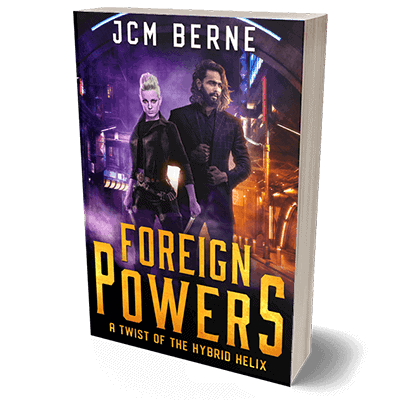Every time you read a book, your experience is deeply influenced by the feelings, expectations, and beliefs you have about the author. There are many examples of this, but the one I want to talk about is trust.
I don’t mean personal trust – most of us don’t know the people who write what we read. I’m talking about something else. Maybe narrative trust.
What is narrative trust?
By narrative trust I just mean, do you trust the author to meet your expectations for the story? Do you trust that they’ll meet the standards of the genre? If they’re a romance writer, do you trust that you’ll get your happy ending? If they write science fiction, do you trust that the technology they pose makes sense (works consistently, follows rules, etc.)? Do you trust that their characters will make sense – will act more or less consistently, not doing things that they wouldn’t do just to advance the plot? Do you trust that the author will answer the questions that are raised during the narrative (if it’s a mystery, whodunit? If an adventure, howdunit?)
I’m sure every reader cares about these different things to different degrees, and there’s nothing wrong with that. Maybe you don’t care if the plot makes sense as long as the prose is gorgeous. Great! Then for you, the trust question boils down to, do you trust this author to write beautifully and consistently throughout the story? To evoke whatever feelings you treasure in you with their writing?
Are there examples of authors you trust, Joe?
I’m glad you asked!
I have two go-to examples for this.
The first is the TV show Lost (plane crashes on a mysterious island; weirdness ensues). Early on the show introduced a mystery. There was a sequence of (apparently) random numbers that had to be entered into a machine to prevent some catastrophe (honestly, I forget some details). One of the plane crash survivors had used those same numbers to win the lottery – and him winning the lottery led directly to him being on that plane.
Surely that’s no coincidence, right? Surely those numbers had some magical significance that would eventually tie into the paranormal mysteries permeating that island, right? Right?
I carefully watched every episode right through the end (and yes, the ending was controversial, and no, I didn’t hate it, but that’s another story) to see what the connection was. And we never found out.
I assumed that there was, in the minds of the writers, some explanation for the numbers, one that had perhaps been left on the cutting room floor. Then I read an interview with the writers where they admitted that they, themselves, had no explanation for the numbers.
You see, having a coincidence like that intrigues us only because we think it has an explanation. Any idiot can write a show where strange things happen. It’s only interesting when those things can actually be explained through some common cause. A mystery where someone dies and there is no killer isn’t a mystery, it’s just a sad story.
The writers of Lost were successful – they got me to watch the whole show, waiting for answers – but they never delivered. They promised an explanation and never gave one.
I’m sure many people still thought the show was cool. It definitely evoked feelings of awe and wonder, even if the weird things weren’t fully explained. And if you enjoyed the show, I’m glad for you. But I will never again trust those writers to deliver on their promises, and I will forever avoid watching things they’ve worked on.
I hate my second example but I have to use it: Joss Whedon. Yes, he’s a terrible person. Yes, he wrote the single cringiest moment in the entire Marvel Cinematic Universe and I will forever hold him in disdain for that. But he and his team on Buffy did some fantastic work.
In one season of Buffy the Vampire Slayer a new character appears – Buffy’s little sister, apparently. No explanation was provided, but everyone around her treated her as if she’d always been around.
The addition looked like a retcon – like the writers wanted to add a character and just wanted us to pretend she had always been there. That’s sloppy writing and the sort of thing that really annoys me.
I sighed, reminded myself that Joss is a good writer, and kept watching.
I’m not going to say the storyline was the greatest thing ever, but by the end of the season the character’s appearance was fully explained (spoiler: it was magic), everyone’s behavior made perfect sense within the context of the storyline, and I was fully satisfied.
If I hadn’t trusted Joss Whedon as a writer I might have stopped watching the show, and I certainly would have enjoyed it less. But I felt strongly that he’d make it work in the end, and in that case I was right.
How do we know whether to trust a new author?
You don’t.
You can read reviews, get recommendations from people you trust, and so on. But reading a new author is on some level a leap of faith. To be honest, reading an old author is a (smaller) leap as well – sometimes authors break your trust. Sometimes they write some really good books (good by your standards), then try ‘something new’ and write something you hate.
This is one of the great stumbling blocks for an indie author (like me). Suppose my book had been written by, say, Steven Erikson. Or Brandon Sanderson. Same text, same title, cover, all of that. Someone looking at that book would have an entirely different expectation for it. But you don’t know me – you don’t know how silly or goofy my book will be. You don’t know if it’s a poorly written wish fulfillment fantasy for an old white dude with too much free time and not enough sense. You don’t know if the characters will resonate, the setting feel fresh.
Honestly, if I were you, and I saw my book, I’m not sure I’d read it. Because until you read it you don’t really know if it’s any better than what an average nine-year-old would come up with after watching Guardians of the Galaxy.
Now, you can read my reviews (Amazon or Goodreads) and get a better idea. You can subscribe to my newsletter and get a short story from me to see if you like my writing style. You can read an actual review from the talented Dawn Vogel. But it’s hard to be sure those people aren’t all my friends, and are being nice in their wrods.
Can we trust you, Joe?
Of course I think you can.
I’m a grumpy, critical old man who gets annoyed by a lot of things. The number one reason I write is to put down stories that wouldn’t annoy me. That means a ton of things – the plot has to make sense, the characters and dialogue have to meet a bunch of very specific standards, the science and magic have to be really consistent and minimally weird. I feel pretty confident I’ve been doing that with my novels.
Does that mean they’ll work for you? I can’t honestly answer that. I can’t promise you’ll like my writing.
I can promise that my plots will have few holes. My characters will act like themselves, even when it’s inconvenient for me. The weirdness in the worldbuilding (why are so many of the aliens so human-like?) have reasons and aren’t just laziness. Every book will be different from the others.
I can promise these things because, to be honest, the plot holes and unanswered mysteries would probably annoy me more than they’d annoy you. Because I’m that grumpy, that critical, and that difficult of a person.
So, read my books, because I’m more crotchety than you are. Trust me.



0 Comments